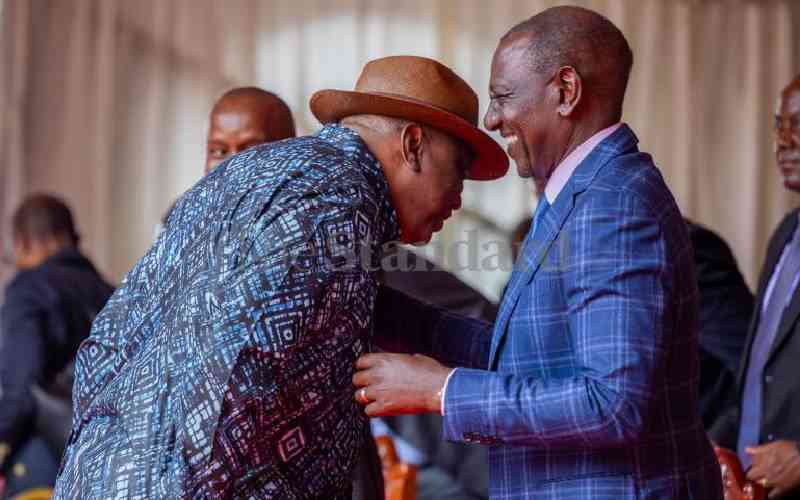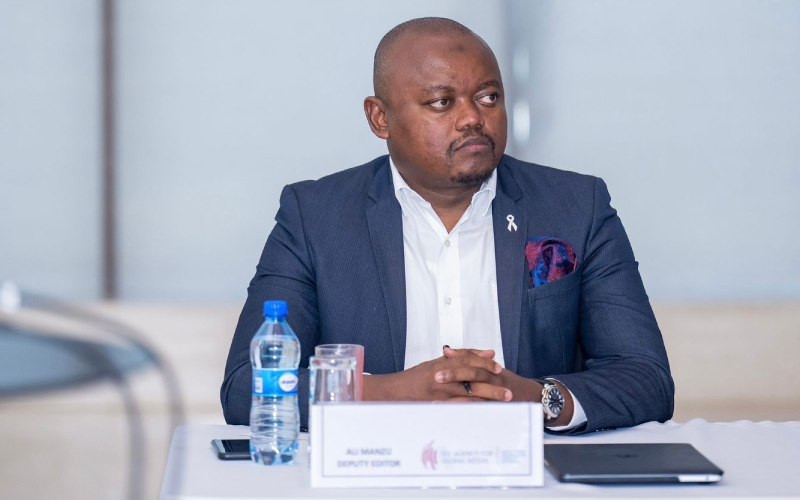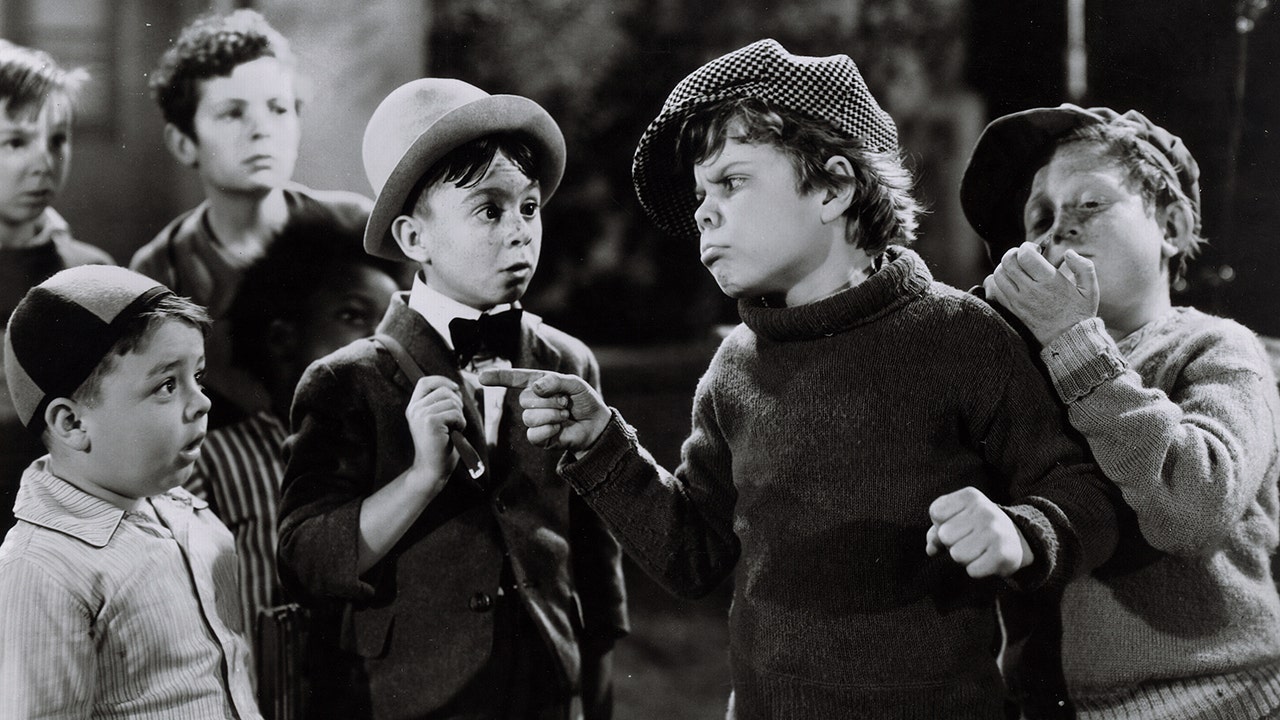For three decades, Ghana’s political landscape has been dominated by two parties — the New Patriotic Party (NPP) and National Democratic Congress (NDC), each of which has won four presidential elections.
Instead of a multiparty democracy, the country is becoming a biparty democracy at the expense of smaller parties and independent candidates, whose share of votes in presidential and parliamentary elections has dropped. But momentum is building for a third force — the Movement for Change — to contest this year’s December elections. Can it break the pattern?
In 1992, smaller parties and independent candidates combined garnered 11.3% of all valid votes in the presidential elections. Since then, their performance in presidential polls has consistently declined to a paltry 1.3% in the 2020 general elections. The number of small parties and independents in Parliament also fell from 11 in 1992 to zero by 2016.
Among the many reasons for this is the winner-takes-all system. The failure of smaller parties and independent candidates to unite, coupled with the increasing monetisation of electoral politics, has further derailed their chances.
Now Alan Kyerematen, who resigned from the NPP, has formed the Movement for Change, aka the Butterfly Movement, to contest the presidential elections as an independent candidate. Recent polls tip him to garner 7.5% of total votes — a small but significant achievement given that previous independents have barely managed 1%.
This isn’t the first time politicians have broken away from parties to contest elections. In 1996 Charles Wereko-Brobby left the NPP to form the United Ghana Movement, and Goosie Tanoh left the NDC to form the National Reform Party before the 2000 polls. But their influence couldn’t be sustained.
Also, before the 2012 elections, Paa Kwesi Nduom broke ranks with the Convention People’s Party to establish the Progressive People’s Party, which many thought would be a force in that year’s polls. But it couldn’t survive the duopoly’s strength, and the euphoria around the party died off after the elections.
Kyerematen and his movement have an advantage that perhaps the others didn’t. This is the first time a dominant figure from a major party has broken away to challenge the duopoly. Ahead of last November’s NPP presidential primaries, polls predicted that 54% of Ghanaians preferred him to lead the party into the general elections, showing his popularity.
As the longest-serving trade minister, he says his track record in public service, including his incorruptibility, will entice Ghanaians to vote for him. Also, his message of forming a government of national unity could be a selling point if properly communicated, especially since many Ghanaians are fed up with the divisive winner-takes-all system.
Moreover, with the two candidates from the NPP and NDC hailing from the north, Kyerematen can attract southern votes, which constitute the majority. This is especially true in his home region, Ashanti, which has the second-largest voting population in the country and is the NPP stronghold.
Furthermore, efforts to unite with smaller political groupings under the Alliance for Revolutionary Change could inspire confidence in the Movement for Change. So far, the proposed alliance comprises nine groups — the Movement for Change, National Interest Movement, Union Government Movement, Ghana National Party, Ghana First Coalition, Green Party of Ghana, Ghana Third Force Movement, Non-Aligned Voters Movement, and Crusaders Against Corruption Ghana.
The Movement for Change also comes at a time when many Ghanaians have become disenchanted by the behaviour and performance of the two main parties, and want other options. Afrobarometer says over 70% of Ghanaians prefer multiple political parties, to give voters choice.
Finally, Peter Obi — who shook the foundation of Nigerian politics by presenting a strong Labour Party to challenge the established All Progressives Congress and Peoples Democratic Party — has inspired belief among Ghanaians that a third force can emerge.
Popularity and circumstance
Kyerematen’s biggest weakness is that he was part of the current administration, which many Ghanaians believe has underperformed. The nation’s economic difficulties have necessitated an International Monetary Fund bailout and debt restructuring, and some critics say he cannot exonerate himself from the regime’s ills after being trade minister for nearly seven years.
Also, many point to his dwindling popularity in Ghanaian politics. After winning 37% of the NPP’s presidential primary votes in 2007, Kyerematen garnered only 10% in the 2023 special delegates conference. Some say he’s too elitist and removed from the youth and ordinary people – although he insists his movement is all about young people.
The popular belief among Ghanaians that a vote for a party other than the NPP or NDC is a wasted vote could also affect his chances. So too could the rate at which the two major parties use money to campaign and influence elections — meaning any credible alternative must raise substantial cash to compete.
To become a more formidable force and make an impact in the general elections, the Movement for Change must attract more smaller parties and movements. The Alliance for Revolutionary Change is a step in the right direction, but the party should ally with other groups, such as the New Force Movement and Economic Fighters League.
The Movement for Change should also target its message to youth and women, who comprise most of Ghana’s voters. Recruiting more grassroots volunteers could help counteract the two dominant political forces and sell its message to ordinary citizens. More voter education on how an independent candidate can lead the country will also lessen the scepticism about Kyerematen’s chances and overcome the electorate’s fear of wasted votes.
Finally, the Movement for Change should leverage the power of social media to drive its key campaign messages, especially among the youth. DM
Enoch Randy Aikins, Researcher, African Futures and Innovation, Institute for Security Studies (ISS).
First published by ISS Today.



















Discussion about this post